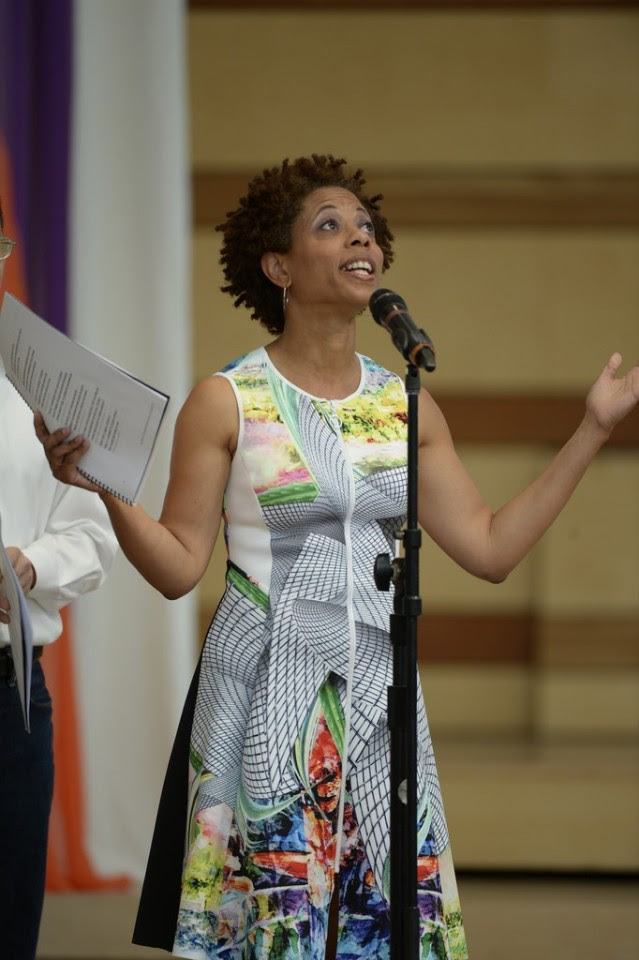
URI FRIEDMAN, The Atlantic JUL 2 2014, 9:05 AM ET ASPEN, Colo.—”The moment was fine for me…. But I don’t know, how was it for you?” That’s New York Times columnist Mark Oppenheimer asking Tessie Guillermo, president and CEO of the consultancy ZeroDivide, how she felt when he inquired about her ethnicity.
“Context is really important,” Guillermo responded. “The context, the place of the situation in which the question is asked, really dictates the answer. I guess I’m one of those people that are always trying to put folks at ease.” Guillermo had just recalled that when she was young, her mother used to clean her with a stone “because she thought she could rub some of the color off of us.” “We were the only non-blacks on our block,” Guillermo explained, “and she wanted to make sure that we weren’t thought of as black.” “What are you, ethnically?” Oppenheimer had asked in response. “Filipina,” Guillermo answered.
The exchange took place at the Aspen Ideas Festival, which is organized by The Atlantic and the Aspen Institute, during a panel discussion on The Race Card Project, a four-year-old effort by NPR host Michele Norris to solicit people’s frank, unfiltered thoughts on race in bite-sized, six-word essays. She’s received tens of thousands of responses from people in 63 countries.
Watch the The Race Card Project’s, Say What?!? Performance at Belly Up, Aspen
“One of the most common submissions to The Race Card Project is some formulation of, ‘So, where are you really from?'” Norris said. “To a lot of people that hits their ear the wrong way. It feels like someone is trying to point out their otherness: ‘You’re quite obviously not American, so where are you from?'” The question, Norris added, is, “How do you express curiosity without stepping on someone’s feelings?” As these testimonies demonstrate, some people resent the question, others embrace or at least tolerate it, and still others find it thoroughly confusing. And sometimes people experience all these feelings at once, or different emotions depending on the situation. Immigrants around the world struggle with the question.
Here’s how the researchers Virginia Mapedzahama and Kwamena Kwansah-Aido reflected on this “quintessential question of identity” in a 2010 paper on African identity in Australia: While acknowledging that a certain ‘curiosity’ sometimes drives the asking of this question, we still question the implications and multiplicity of meanings to those whom it is asked. We contend that being asked the question raises three key issues for us. First, we perceive it as exclusionary, in that in a white dominated society it is asked, mainly of certain groups of people who are visibly different. Second, the assumption behind the question—that one is not ‘from here’, constructs an/other whose identity is fixed and tied only to one faraway place, thereby erasing our hyphenated identities, which define our everyday lived realities. Third, it invokes feelings of ambivalence about place when it is interpreted as demanding a justification of the claim to belonging and being ‘from here’.
Watch the Say What ?!? Performance from The Afternoon of Conversation at The Aspen Ideas Festival, 2014
The importance of context was a recurring theme throughout the Race Card Project discussion. Norris pointed out that the audience laughed when one card—”Not all Mexicans can do landscaping”—was read aloud. “The people who wrote this didn’t write” with the intention of being funny, she observed. “Is it nervous laughter? Is it laughter because of recognition? Or is it the fact that laughter plays a role in creating a bridge to each other? I have always thought that the most honest conversation about race in America takes place on a comedy stage … where people can say things that are impolitic almost everywhere else.
Where you’re allowed to laugh.” The panel also debated whether the fact that some stereotypes are based in truth makes them any less pernicious, and whether it’s corrosive or cathartic for ethnic groups to stereotype and poke fun at themselves. “It doesn’t bother me to have a little inter-ethnic humor, frankly,” PBS anchor Gwen Ifill said. “I think you have to be careful about calling everything racism. Making self-mocking, humorous, loving references to stereotypes can be pretty funny. It’s not so funny if those same things are said by someone else whose attempt is to hurt or scar or limit you.”
The Atlantic’s Jeffrey Goldberg found the practice more troubling. “There are people in African-American communities, Jewish communities, other communities, who internalize some of these stereotypes and actually begin to believe them. That’s the nature of minority self-hatred,” he said. “We’ve seen this in comedy. Dave Chappelle went silent for six years, and many black comedians have this … where suddenly they realize they’re making these jokes about black people, and white people are laughing, not benevolently. They’re running with this stuff.”
_______________
Uri Friedman is a senior associate editor at The Atlantic, where he oversees the Global Channel. He was previously the deputy managing editor at Foreign Policy and a staff writer forThe Atlantic Wire.
This article was originally published on The Atlantic. Click here to view the original. © All rights reserved. Distributed by Tribune Content Agency. http://www.theatlantic.com/international/archive/2014/07/question-where-are-you-from-racist/373818/








Comments are closed.